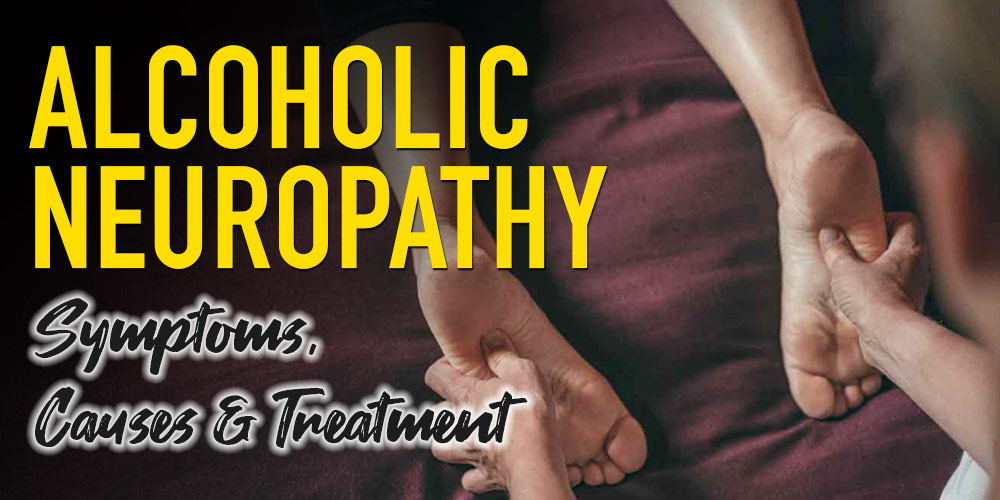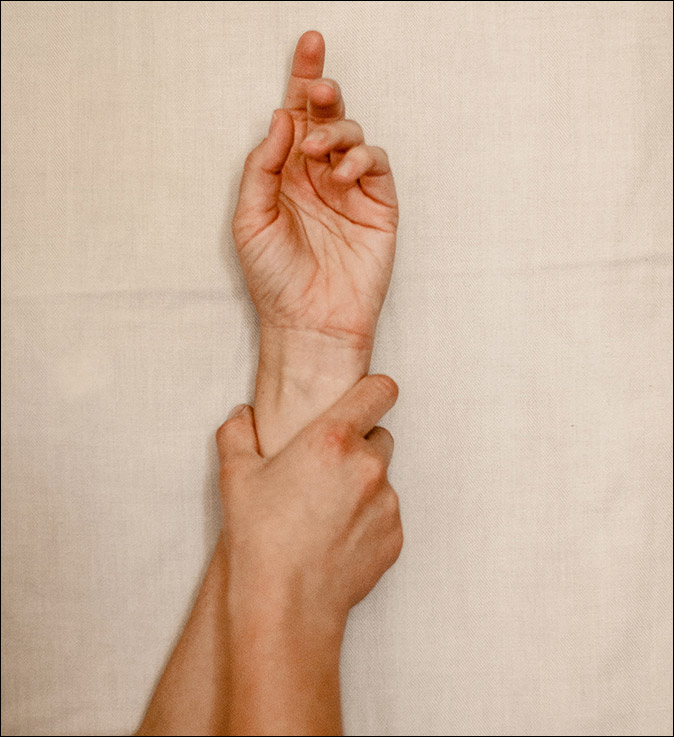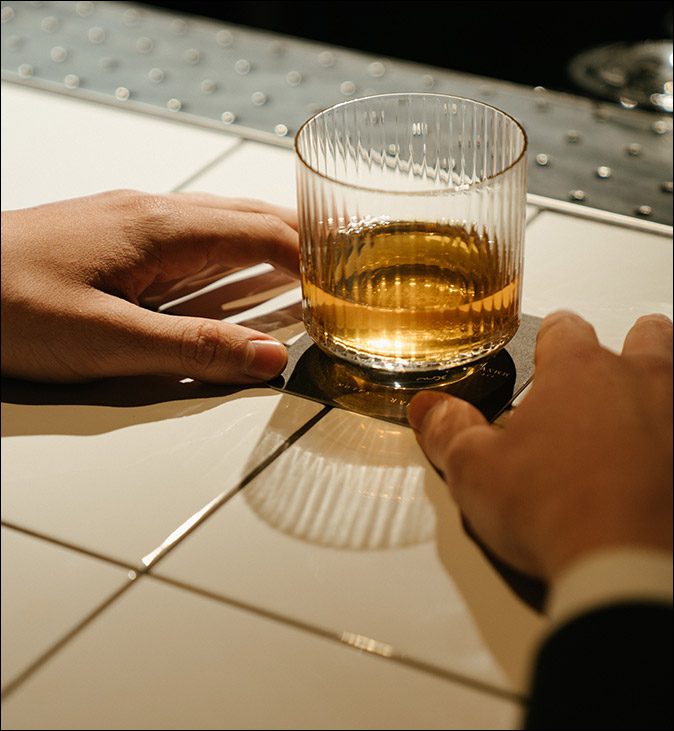
Excessive alcohol consumption, especially for long-term drinkers, can create a host of difficult health issues. Of course, there is the potential for addiction, but developing a painful condition known as Alcoholic Neuropathy is something few people know about.
Nerve damage from this condition can be permanent, although many of the painful symptoms are likely to subside or ease up with treatment and abstaining from alcohol use.
For those with functional alcoholism or heavy drinkers, it’s not uncommon for the physical side effects of alcohol to lead to poor overall health, including high blood pressure, a greater risk for stroke, some cancers, and even alcoholic neuropathy.
Neuropathy can cause permanent nerve damage resulting in problems with coordination, loss of feeling or sensation in the extremities, chronic pain and possible long-term disability.

What is Alcohol Neuropathy?
Neuropathy occurs when one or more nerves, particularly peripheral nerves, are damaged, diseased or not functioning properly.
People with neuropathy can experience tingling and shooting pains in their limbs. It can also cause muscle atrophy and weakness, and is sometimes degenerative, leading to movement disorders.
While neuropathy can be the result of an injury, infection or disease, it can also be brought on by vitamin deficiencies, toxins, and drugs. In the case of alcohol neuropathy, years of excessive drinking are at the root of the issue.
What are the Causes of Alcoholic Neuropathy?
Peripheral nerves are responsible for sending signals between the brain, spinal cord, and the body. Healthy peripheral nerve function requires proper levels of certain nutrients, such as:
- Thiamine
- Niacin
- Vitamins B1, B3, B6, and B12
- Folate
- Vitamin E
Heavy alcohol use and abuse can significantly diminish these nutrients in the body and cause permanent nerve damage or alcoholic neuropathy.
Ironically, a Thiamine or Vitamin B1 deficiency caused by excessive alcohol use is also a major contributor to another type of health condition known as Wet Brain Syndrome.
Damage to the peripheral nerves may initially present as a tingling sensation in the limbs, as if areas like the arms or legs have “fallen asleep.”
When ignored or left untreated, alcohol neuropathy symptoms can become much more painful, decreasing a person’s quality of life and making day-to-day activities difficult or impossible.
It’s important to understand that peripheral nerves help the body operate vital functions like arm and leg movements, urinary and bowel movements, sexual activity and even speech.

What are Typical Alcoholic Neuropathy Symptoms?
Symptoms of this condition range from slight discomfort to serious disability. While alcoholic neuropathy is not necessarily life threatening, it is a dire warning signal that a person is drinking far too much alcohol.
In addition, too much alcohol is likely to be causing not just neuropathy, but other unwanted physical and mental health issues in their life as well.
Symptoms of alcoholic neuropathy caused by drinking can include some of the following:
- Numbness, tingling, prickly or burning sensations in the arms and legs
- Muscle cramps and spasms
- Weak, atrophied muscles
- Problems with urination
- Constipation, incontinence or diarrhea
- Sexual dysfunction or impotence
- Lightheadedness, dizziness, nausea, or vomiting
- Difficulty swallowing
- Speech impairments
When seeing a doctor for any of the above symptoms, be honest and open about how often and how much alcohol you consume.
Before an official diagnosis of alcoholic neuropathy, physicians will usually have blood tests done to rule out any other issues that might be leading to neuropathic symptoms. This will also look for deficiencies in some of the nutrients listed above, like niacin, thiamine, and others.
Other diagnostics might include a nerve biopsy or conduction test, neurological exam, and a test of liver and thyroid functioning.
Once alcohol induced neuropathy has been diagnosed, however, there are several different treatment approaches that may improve some or many of the symptoms. An early diagnosis will usually improve the outcomes.
Alcohol-Induced Neuropathy Treatment
Patients receiving treatment for alcohol-induced neuropathy may be put on a regimen of vitamins to improve their levels of niacin, thiamine, B-Vitamins, and folate among others.
Some over-the-counter or prescription pain medications or antidepressants might also be necessary, in addition to approaches like physical therapy to increase strength in atrophied muscles.
In some instances, it might be required to wear orthotics or support devices to stabilize the feet and limbs as part of a care treatment program. These are meant to prevent injuries caused by dizziness or loss of nerve functioning.
However, it’s key that people suffering from this condition stop using alcohol altogether. For people with an alcohol use disorder, this can be a serious challenge that requires inpatient or outpatient alcohol addiction treatment.

It’s not uncommon that neuropathy is a symptom of a larger problem with alcohol addiction.
Undergoing inpatient treatment at a rehab facility or, in milder cases, outpatient programs, can help give patients the tools they need to remain alcohol and symptom free.
With one-on-one counseling, group therapy sessions, compassion and support, many people go on to live a productive, healthy and alcohol free life.
Ways to Prevent Alcoholic Neuropathy From Excessive Drinking
Based on the symptoms and possible treatment methods, it’s easy to see why alcoholic neuropathy can be a scary thing to imagine for anyone who is a long-term drinker, especially since nerve damage might be permanent in some cases.
For those who have a problem with alcoholism, this reality might provide the motivation needed to seek treatment and quit drinking for health reasons.
To prevent neuropathy from occurring, it’s important to follow these recommendations:
- Drink alcohol in moderation and avoid binge drinking or drinking to excess for long periods of time
- Eat a healthy diet that includes a balance of fruits and vegetables that provide essential nutrients for maintaining proper brain and physical health
- Regularly take vitamins or supplements that include Vitamins B1 (thiamine), B3 (niacin), B12 (for nerve and blood function) and Vitamin E
- If you experience alcohol neuropathy, stop drinking immediately and speak with a doctor about the symptoms
If it is not possible to stop drinking on your own, seek professional help at a licensed treatment facility. Recovery is possible and beginning treatment early can help people avoid serious health complications from happening later in life.
Related Posts
- Alcohol Dementia Causes, Symptoms and Treatment
Note: Alcohol Dementia goes by many names including, alcohol-related dementia, alcoholic dementia, and alcohol-induced dementia.…
- Alcohol Poisoning and Hangover Symptoms
Most adults who drink alcohol, either regularly or on special occasions, are likely to have…
- Fetal Alcohol Syndrome - What is It and What are the Symptoms?
Did you know that Fetal Alcohol Syndrome (FAS) is the leading cause of preventable birth…
